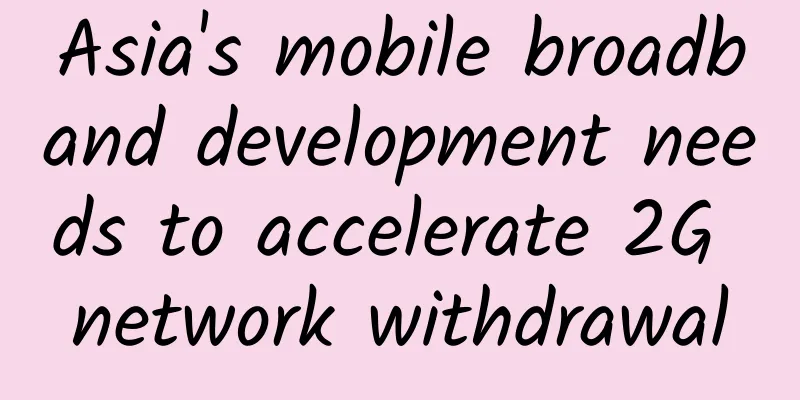Faced with the policy requirement of "speeding up and reducing fees", why don't operators respond in this way?

|
As the Internet becomes more popular, the intelligent pipeline connection service provided by telecom operators has become more important as an infrastructure. In order to provide innovative entrepreneurs and other industries with better quality and lower-cost network connection services under the national development strategy of "Internet +" and the development of "mass entrepreneurship and innovation", the State Council has put forward the policy requirement of "speeding up and reducing fees" for telecom operators since 2015. According to information released by the State-owned Assets Supervision and Administration Commission, for this item alone, operators have given more than 130 billion yuan in profits to the society. However, even though telecom operators have made such concessions in recent years, the satisfaction of the public seems to be far from satisfactory, and there is constant criticism of the operators. Some media people have used the hundreds of billions of concessions to average out the total population and concluded that there is no sense of gain from such concessions. The root of all the criticisms of operators lies in the perception that telecom operators are monopoly enterprises. In the face of accusations of monopoly, both telecom operator insiders and industry observers believe that the fierce competition among the three major domestic operators is unworthy of the word "monopoly"!
Each has its own reasons, but from the perspective of the country's positioning of telecom operators, the expectation that operators will continue to implement the policy of "speeding up and reducing fees" in the future is still relatively clear. In this case, how do telecom operators deal with the contradiction between "speeding up and reducing fees" and the assessment of the growth of corporate revenue and profit indicators? Moreover, this contradiction will become more prominent in 2018. Judging from the competition among the three major operators in 2017, the ranking of China Unicom, the third largest operator in the industry, in terms of home broadband user market was also surpassed by China Mobile, and the gap in user scale continued to widen. China Mobile has brought the price of home broadband services to a new low with low-cost integrated packages. Under such circumstances, in the first half of the year, China Unicom and China Telecom started with the all-network terminal strategy and unlimited traffic packages, opening the "Pandora's box" of low-cost mobile networks. In the short term, unlimited traffic has improved the ARPU value through higher traffic, but in the long term, the pressure of unlimited traffic packages on network carrying capacity and the advancement of package price wars will make telecom operators face the dual pressure of increasing volume and revenue while increasing network investment. All of this is due to the fact that the operators are fully responding to the government's call for "speeding up and reducing fees". But in fact, the three major operators are already overdrawing the future, especially this kind of pressure, which has greatly overdrawn the morale and combat effectiveness of the operator team. Under such circumstances, China Unicom took advantage of the mixed ownership reform and launched the so-called Internet packages through in-depth cooperation with Internet companies. As the personalized packages are more and more favorable in terms of tariffs, they have led to different treatments for new and old users, and ultimately triggered the Ministry of Industry and Information Technology's excessive intervention in such services where enterprises have greater operational autonomy. Although from the data, China Unicom has gained more than 50 million new users through this move. However, there are also constant criticisms that China Unicom is "drinking poison to quench thirst". Therefore, it is difficult to predict what impact the so-called Internet operation innovations that China Unicom has vigorously promoted through mixed ownership reform will have on the entire operator industry. Whether China Unicom can achieve its mixed ownership reform goals with the help of Internet companies is probably the biggest test for the core team that is about to carry out employee shareholding. Under such circumstances, I personally expect that China Unicom will continue to expand its efforts in the competition for mobile network users in 2017, as it faces the loss of household broadband user share. This will allow mobile data charges to continue to drop significantly. In this case, China Mobile and China Telecom will also have to follow suit. The biggest beneficiaries are of course individual users, but Internet companies are also beneficiaries. Internet companies rely on their own channel capabilities. The so-called channel is king. The stronger the channel capabilities, the greater the dependence on the Internet company's channels, and the greater the right to distribute benefits the channels can obtain. According to the latest data from the Ministry of Industry and Information Technology, as of the end of November 2017, telecommunications business revenue maintained steady growth. From January to November 2017, the total volume of telecommunications business reached 2,418.5 billion yuan, a year-on-year increase of 72.2%. Telecommunications business revenue reached 1,164.4 billion yuan, a year-on-year increase of 6.5%. The proportion of fixed communications business revenue remained stable. From January to November, the three basic telecommunications companies achieved mobile communications business revenue of 838.3 billion yuan, a year-on-year increase of 5.8%. Fixed communications business revenue reached 326.1 billion yuan, a year-on-year increase of 8.3%. Fixed data and Internet business revenue increased by 9.2% year-on-year. From January to November, the fixed data and Internet business revenue of the three basic telecommunications companies reached 181.1 billion yuan, a year-on-year increase of 9.2%. Mobile data and mobile Internet business revenue reached 502.3 billion yuan, a year-on-year increase of 26.6%. From the data, the telecommunications industry as a whole has maintained a relatively stable growth, and the revenue and business data of the three major telecommunications operators have continued to maintain a steady growth. However, if the competition situation in 2017 continues, the revenue pressure and high investment pressure of the three major operators in pipeline business will increase day by day. Therefore, the three major operators will face the following basic situations in 2018: (1) Competition among the three operators will intensify further. The popularity of unlimited data packages will be greatly improved, and a monthly subscription system will be formed in disguise. With the increase in video applications, the challenge to network carrying capacity is becoming greater and greater. (2) Internet packages will further reduce the ARPU value of basic pipelines, and the operators’ voice in whether they can participate in the value distribution of Internet companies and how much they can distribute will become increasingly weak. (3) No matter how hard the operators try to lower prices, as long as overall revenue continues to grow, dissatisfaction with the operators and accusations of monopoly will not end. (4) China Mobile has left the other two far behind by leveraging the user scale of its mobile network and home broadband networks. Therefore, China Mobile’s main competitors in the future should be Internet companies, not China Telecom and China Unicom. (5) China Unicom will be more aggressive, while China Telecom will be in the most awkward position. In this case, telecom operators, especially those with competitive positions such as China Telecom, may wish to learn from China Unicom and adopt a certain degree of radicalism in their strategies. In terms of specific practices, without the mandatory requirements of the network neutrality principle, the following asymmetric methods can be used to ensure the interests of the industry. That is, in terms of connection services for individual users, we should actively follow the practice of China Unicom, continue to increase the speed and reduce the fees for individual users, and further reduce the integrated packages of home broadband and mobile networks. This is necessary to keep the home broadband users from being surpassed by mobile, and also to learn from China Unicom to compete for mobile users. As for the connection services on the enterprise side, especially the Internet giants including BAT, they will raise the price of their data center services, and the price increase will be relatively large. In this way, the industry value can be maintained from this side. There are also the following considerations for Internet companies to raise prices: First, it increases the cost of Internet access for large enterprises, which is also a reverse stimulus for Internet companies, especially large Internet companies, thus having more impact on further changing the free Internet mindset. Second, by raising prices, it will also help to further eliminate Internet companies with backward production capacity in the Internet industry. Third, Internet companies are always better at handling relationships with individual users. They have more flexible and diverse operating methods to gain more benefits from netizens. Operators participate in the distribution of information service consumption by increasing the access costs of Internet companies, which is a major adjustment in the distribution method. Things that they are not good at handling flexibly are handed over to Internet companies. As for meeting the national policy requirements for providing network access support to innovative and entrepreneurial enterprises, this can be fully achieved by introducing special access policies and adopting a differentiated approach. If telecom operators cannot improve their bargaining power over Internet companies’ access and participate in more value distribution, then, based on the trend, it is expected that entering the 5G era will actually be more disadvantageous to telecom operators. Therefore, telecom operators, especially China Telecom, which has a dominant advantage in traditional IDC data centers, may wish to consider this asymmetric pricing method. If we refer to the traffic backward operation model that has been in place since 2013, the extreme way is that the pipeline services of the entire telecom operator will be mainly implemented through the backward model. Operators have been cautiously exploring such a model change before, but judging from future changes, it may take more force to promote it. Of course, it is a miracle that telecom operators can maintain stable growth in the face of multiple different goals, which seem to be contradictory. Those who can create such miracles are all very outstanding people. Therefore, whether it is necessary to take major changes depends on the timing. It is not yet time to be forced to take disruptive operational innovations. However, some research preparations and even local experimental work are still possible. |
<<: Challenges facing data center network technology
>>: Rethinking data center cabling practices to improve energy efficiency
Recommend
Promoting the integrated development of 5G and industrial Internet
As the application scenarios of 5G Industrial Int...
Java performance optimization RPC network communication
[[277794]] The core of the service framework The ...
Standard Interconnect celebrates the launch of its self-developed public cloud system, and offers a 50% discount on telecom high-defense servers
Standard Interconnect is a Chinese hosting compan...
Why do mobile network testers still pursue speed at all costs?
Communications operators must refocus on covering...
What does “IPv6” have to do with us ordinary people?
What is IPv6? Why did it attract widespread atten...
RackNerd "Memorial Day" Sale: Los Angeles VPS from $14.99 per year
RackNerd has launched a Memorial Day promotion, w...
5G! Your future is unimaginable
Nowadays, 5G seems to be like the swallows flying...
The second decade of cloud computing: How will the three major operators welcome it?
In 2018, my country's cloud computing entered...
Is HTTP1.1 Keep-Alive considered a long connection?
[[435412]] This article will talk about the collo...
5G will be the world's most intelligent and interconnected cloud computing
We will enter the 5G era around 2020. 5G will hav...
Cisco: Continuous innovation to create an inclusive future
On June 14, Cisco's annual networking and sec...
[6.18] RackNerd: $17.88/year KVM-1.8GB/18GB/5TB/Los Angeles Data Center
RackNerd has released a special package for the 6...
Traditional Networks vs. IoT Networks: What’s the Difference?
IoT provides businesses with greater visibility, ...
Aruba: New working modes bring huge challenges that traditional network infrastructure cannot cope with
Recently, with the improvement of this round of e...
How to network clock synchronization in wireless networks?
[[346597]] This article is reprinted from the WeC...









